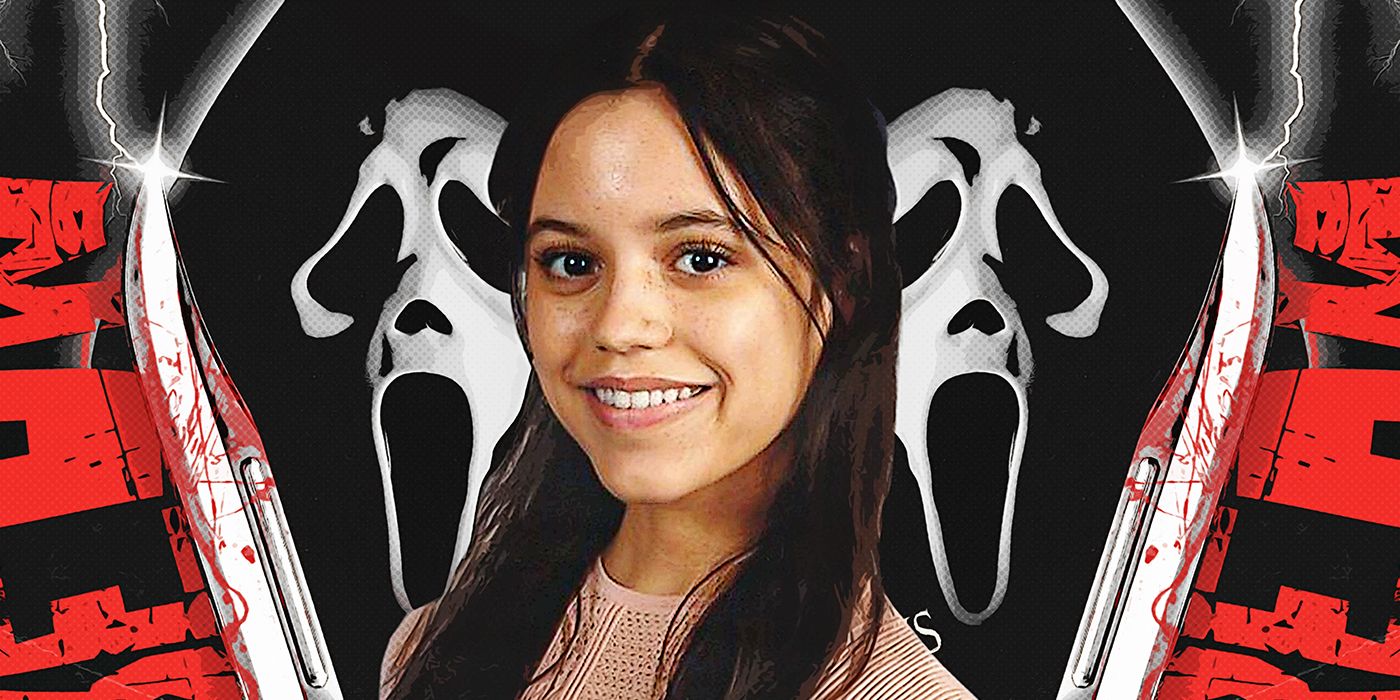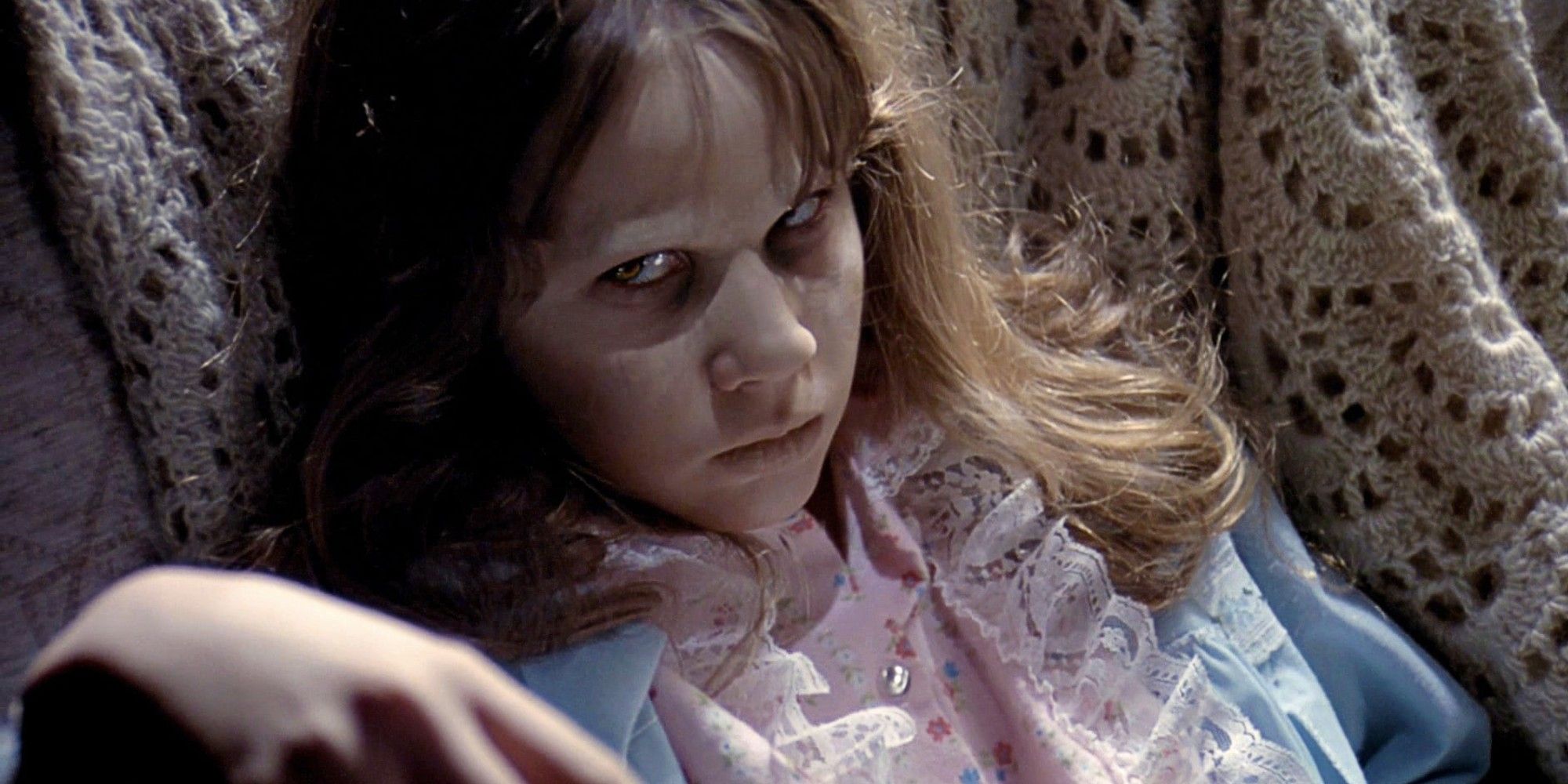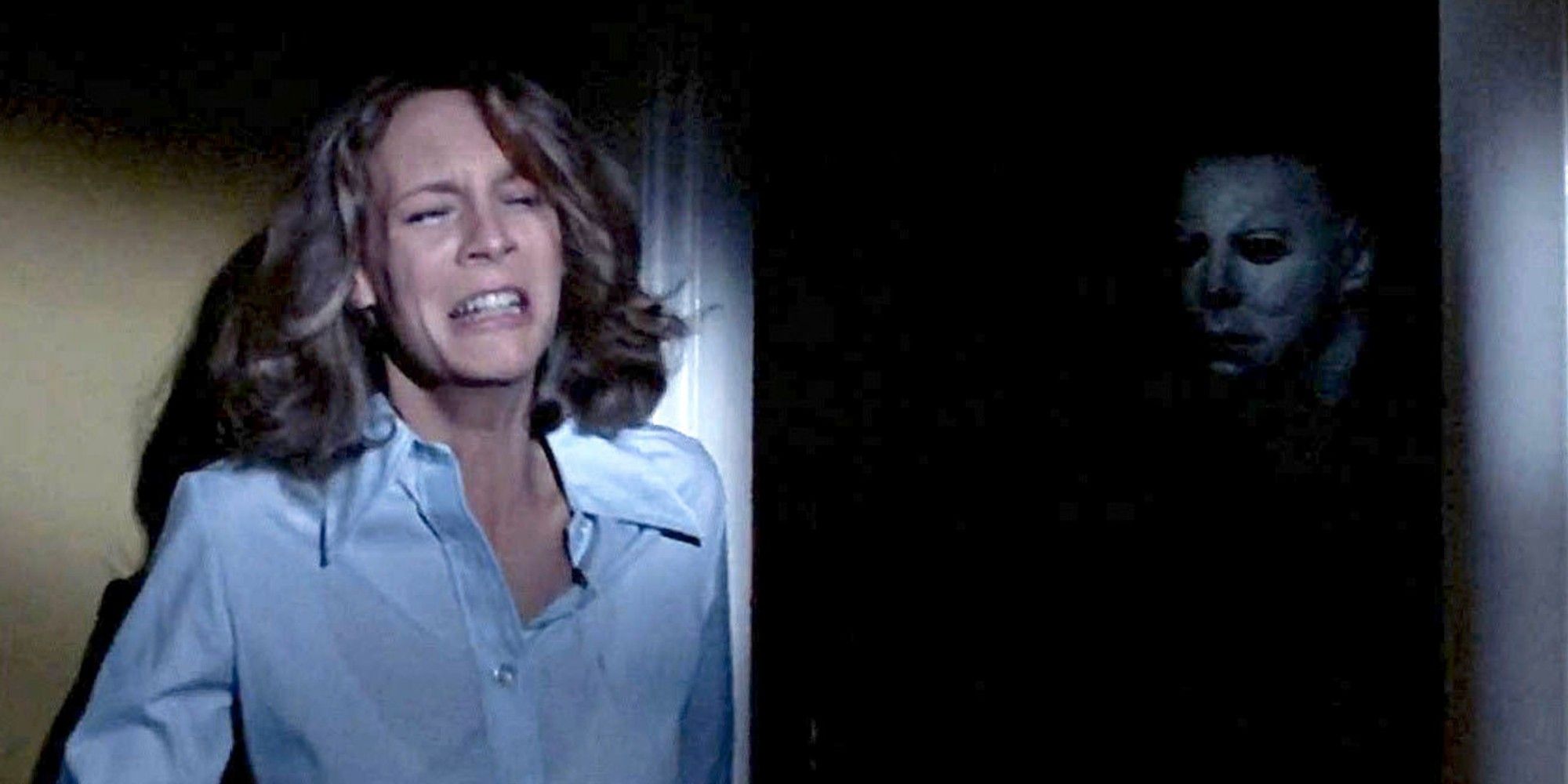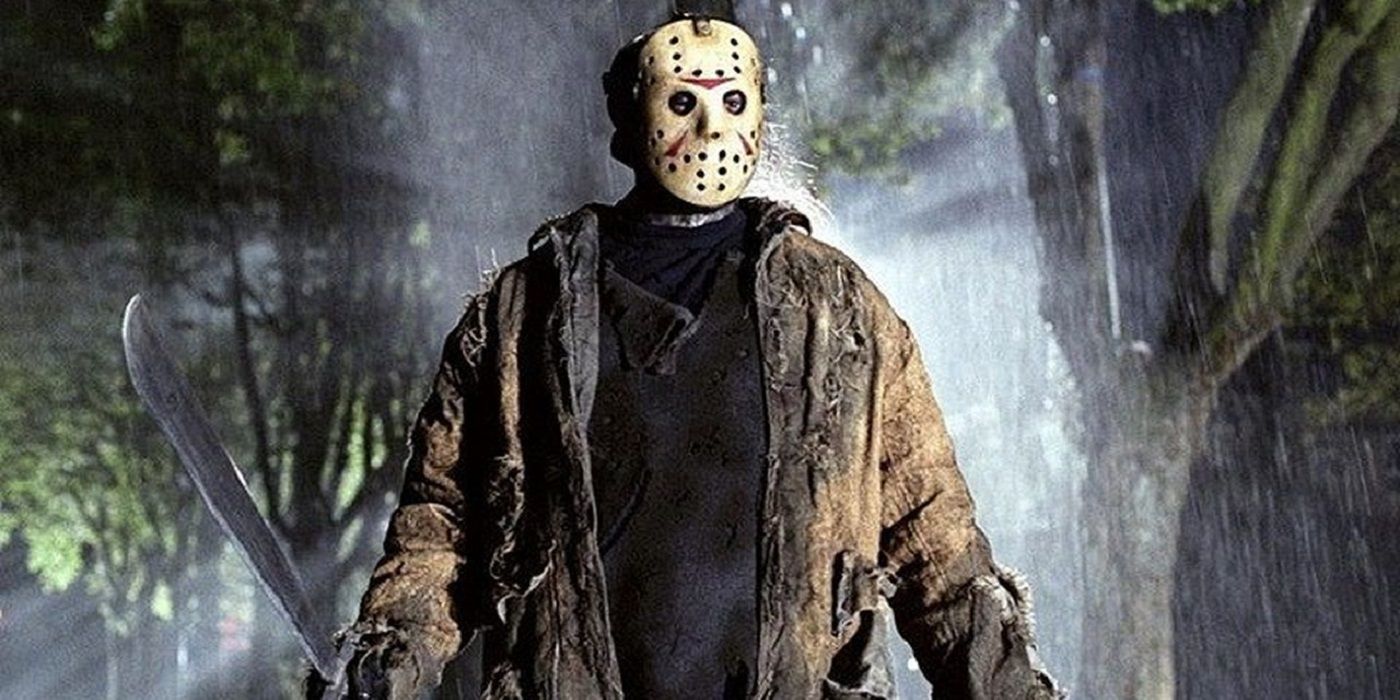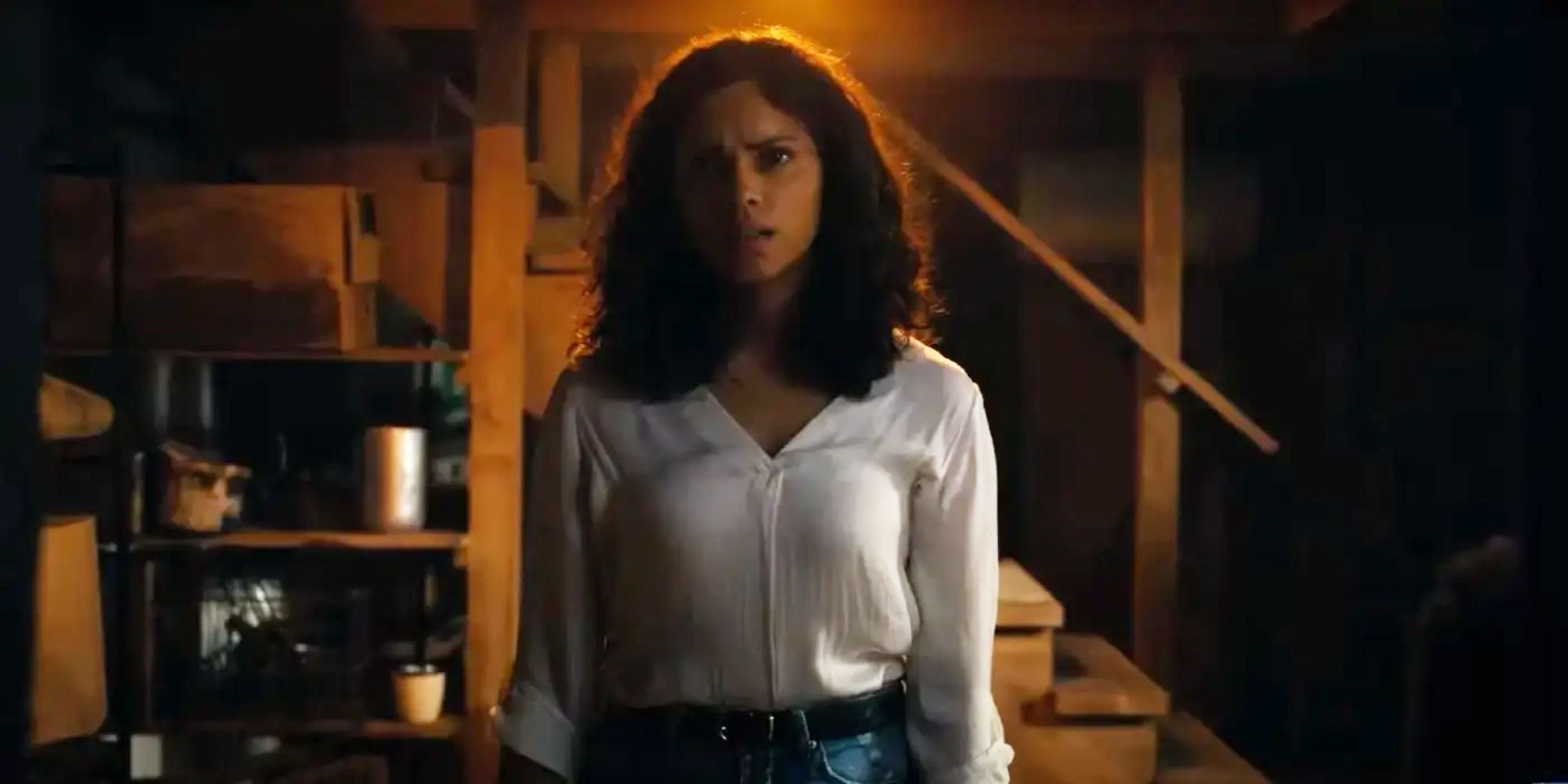It’s safe to say that 2022 was the year of Jenna Ortega. She started off the year by showing that a new generation could take over the Scream franchise with a successful outing that seemingly passed the torch from the original crew to the new one. She ended it with the record-breaking Netflix series Wednesday, a horror adjacent show that follows Wednesday Addams from The Addams Family.
While promoting the show, Ortega showed up on The Tonight Show Starring Jimmy Fallon, where she gave an interesting opinion about horror after the recently released teaser trailer for the next entry in the Scream saga came up. Ortega told Fallon, "I love horror films. I don’t know what it is about having blood thrown on your face and running around screaming bloody murder. It really is so therapeutic, so much fun."
To say that horror movies are therapeutic could be seen as an interesting take for someone who isn’t a fan of the genre. How can blood and guts and watching people be murdered be therapeutic? What positives are there to be found in being scared? For fans of horror, what Ortega said made perfect sense. It’s how we all feel.
Horror Movies Allow Us to Feel Fear Without Consequences
While some see horror movies as a source of anxiety, others see it as a release of that anxiety. This is partially because, with horror, we are in control. When the possessed Regan (Linda Blair) spins her head all the way around in The Exorcist, it’s a frightening image, but one without any real threat. When Michael Myers is stalking Laurie Strode (Jamie Lee Curtis) in Halloween, we’re safe. The Boogeyman can’t see us. He’s not after us. That goes for zombies tearing through boarded-up doors and ripping guts out, masked killers rampaging against teenagers in the woods, or aliens attacking in the darkness of space. We know it’s not real, so it’s like a rollercoaster, but without the threat of being hurt. The bad thing in the movie can’t get us.
There’s a rush in that, the release of adrenaline that puts our bodies on edge. It’s why so many people, when watching a horror movie, will scream at the scary parts, then immediately laugh. It’s not because they find the scene funny or unrealistic. It’s that release. Our senses are heightened, we’ve just been scared silly, screaming, jumping, flailing our arms. The laugh is the realization of that and the comedown.
Ortega even touched on that in the interview, telling Fallon about Scream:
"The cast and crew, they’re my family and we can never take anything seriously. So, Ghostface could literally be in their monologue, and we’re having to restart because we’re all laughing so hard. It’s a mess… In the fifth [Scream film], I was, like, army crawling in the hospital and I would just, I would hide my face because I was laughing into my hands."
Even those making such dark and graphic movies aren’t immune from laughing through the fear. Look at any behind-the-scenes or making-of documentary for a horror film, and most of the time you’re going to find actors breaking during a scene or talking about how much they laughed with their co-stars. They’re living in that rush that we only experience through a screen, but they're experiencing that therapeutic release from it as well.
Horror Allows You to Detach From the World
On a more serious level, many turn to horror films when they’re going through some trauma in life. Yes, comedy films are a good escape from the ills of real life, but so is horror. You would think that, say if you’ve just lost a job, if you’re going through a breakup, or something of a similar stress level, the last thing you would want to do is watch the most stressful genre there is. How can watching something about evil and killers and people being murdered possibly make a sad person feel better? But what do we turn to when we’re down? Sure, we might put on a mindless comedy or action movie, but we just as often turn to horror. How often have you been depressed and then put on a favorite horror movie from your past or streamed the latest new offering you haven’t seen yet?
And how often does a horror movie make us feel worse after? The chances are that it’s rare unless you’re watching something particularly dark with a very unhappy ending (maybe don’t watch The Mist or A Serbian Film if you’re really down.) Instead, after watching a horror movie, we feel better. Part of it comes from that release. We’re tense. Horror takes that away. But it goes beyond that, both mentally and physically.
Mentally, we get to detach from ourselves when we watch a movie. It’s an escape. But for horror movies specifically, it’s a different kind of escape, because we can take whatever we’re going through and put it in the characters on the screen. When the end credits roll, it’s with them now, even if just for a few minutes or hours. Our woes are with them for at least a little while, giving us a reprieve where we can breathe and relax.
If you’re invested in a horror movie and not letting your mind wander, then for 90 minutes your worries are forgotten. You’re not thinking about how you need to get another job to replace the one you lost. You’re not thinking about how heartbroken you are over a breakup, or money woes, or an ill parent. That part of the brain is shut off. Instead, you’re invested in the character of the movie. It’s in horror that we invest in characters the most because it’s there that they’re most threatened. In comedy, they’re the vehicle for the joke. In action, the good guy always prevails. But in horror, anything is possible.
The Stakes in Horror Movies Are Real
All of your real-life worries are put into the protagonists and your investment in their survival. No one is worried if Spider-Man is going to survive the latest sequel. But we worry about who’s going to make it through the next Scream. We wonder if Laurie Strode is going to survive Michael Myers in the end. Is the heroine of Barbarian or Smile going to make it? It’s unpredictable. The good guy doesn’t always win. In some of those examples just given, they prevail, in others, they don’t. So we’re putting all of our real-life worries and anxieties into them.
Physically, it goes back to the rollercoaster effect. It’s a rush that can’t hurt us. Horror is the genre that gets us using our body the most. A good drama might make you cry. A great action flick will get your heart pumping. A classic comedy will get you laughing until your sides hurt. Horror can do all of that, plus scare you, the most intense feeling you can have. The scarier, the better. We’re always told that exercise is a good treatment for depression. It releases endorphins and gets your heart going. Horror movies are like a workout without having to leave the comfort of our couch. On top of it, it gives our brains a rest.
So the next time you’re down, watch Jason Voorhees disembowel some teenagers. Watch a demon-possessed child wreak havoc. Witness a monster destroy a city. Take in the blood and guts and let it take you away. It just might make you feel better.

